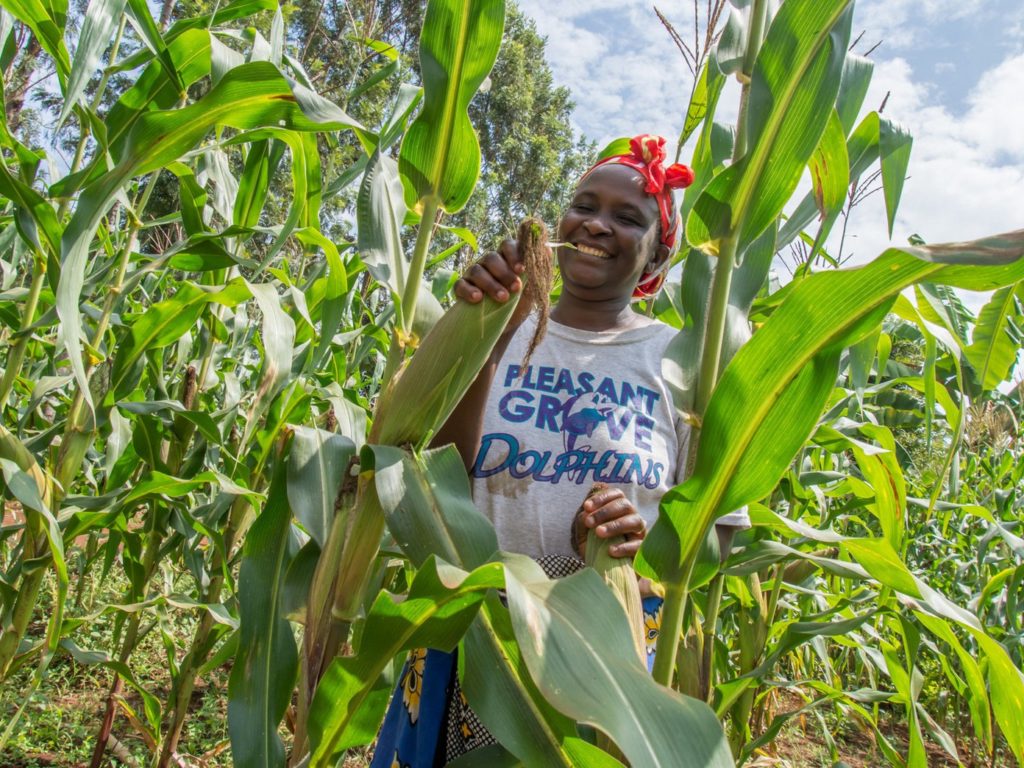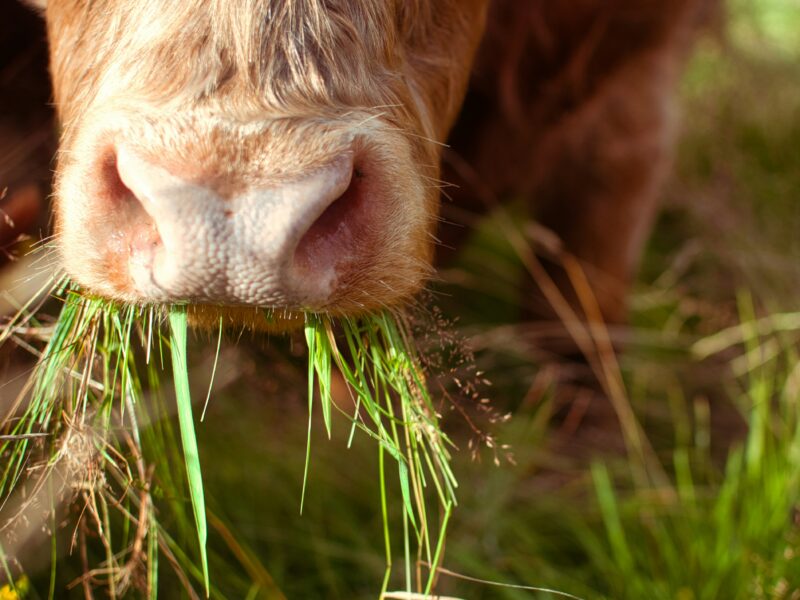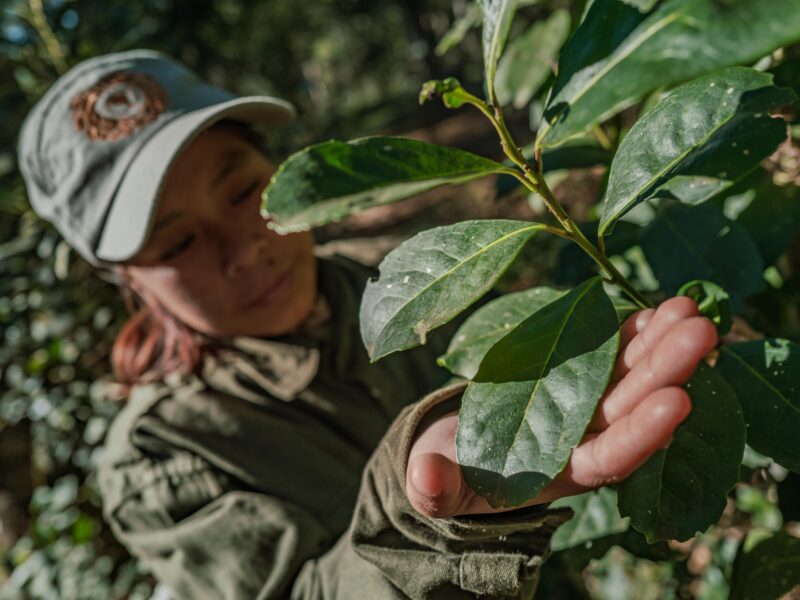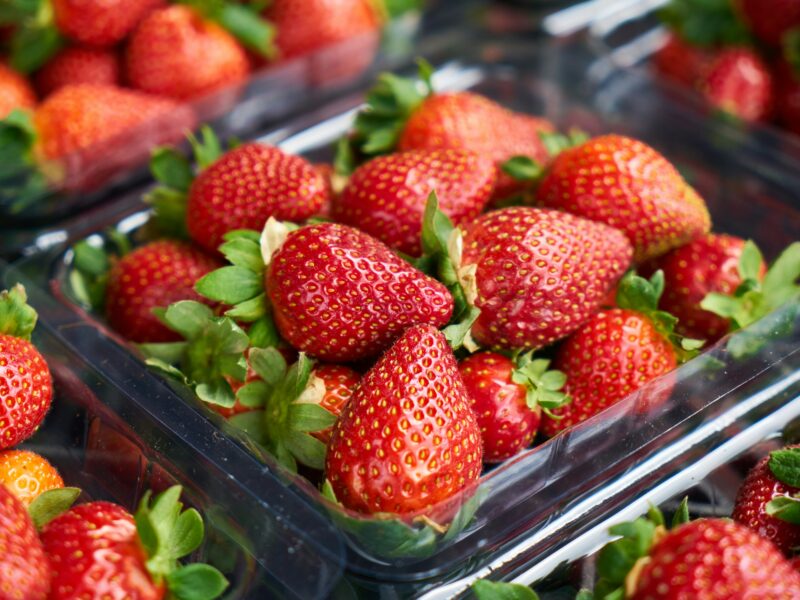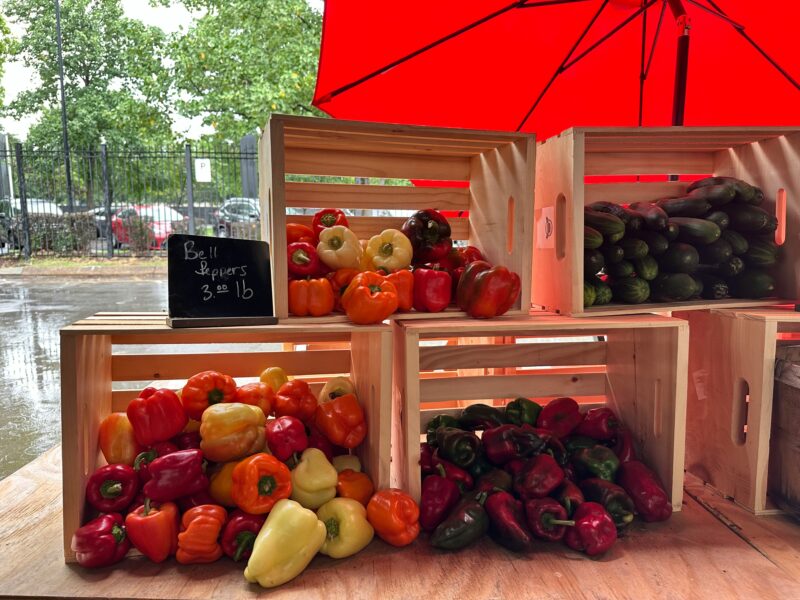In an attempt to help farmers across the country to stop using the world’s most used herbicide before 2020, the French government has released its glyphosate ‘phase-out’ online platform. Beekeepers say problems from weed killer, dicamba, pose a threat. Curled, damaged or dead leaves on flowering plants, trees and other vegetation are triggering a widespread loss of honeybee forage, he says — symptoms that suggest exposure to dicamba, the controversial weed killer that has sparked thousands of similar complaints across U.S. farmland and torn divisive rifts in the agriculture community. Although decades old, the chemical has gained new prominence as agribusiness companies like Bayer turn to dicamba-tolerant seed varieties in the fight against Roundup-resistant “superweeds.” Also in the news, eating organic is affordable at Bunz, a Canada based pay-what-you-can grocery store. The concept is simple: anyone is welcome to help themselves to an array of organic produce, cooking staples and other food—but no more than a day’s worth at a time. Recent analysis shows that there are 11 companies that control everything you buy in the marketplace. Growing research shows the strengthening link between glyphosate and cancer. There’s a new effort to end glyphosate use in a Maryland county park. Fronted by Councilmember Tom Hucker and other Mongumory County, Maryland lawmaker are questioning the safety of using the weed killer. Four-time NBA champion, vegan, and wellness entrepreneur John Salley has acquired an equity stake in plant-based pesticide company, PureCrop1. An evolving concept called “sustainable intensification” aims to bridge the gap between conventional agriculture and organic farming. U.S. certified organic farm operation expansion has outpaced organic acreage according to research conducted by Mercaris in its 2018 Organic and Non-GMO Acreage Report. A new report by the Center for Environmental Health found high levels of the toxic weed killer glyphosate in over 70 percent of the oat-based breakfast foods commonly served in K-12 schools across the country. Glyphosate, the active ingredient in Monsanto’s Roundup, the world’s most widely used herbicide, is applied on farms that grow corn, soybeans, oat, and hundreds of other crops. From there, it can make its way into our food, especially popular breakfast cereals and nutrition bars.
French Government Starts Phase-Out of Glyphosate with Online Farmer Platform and Herbicide Tax
The French government has released its glyphosate ‘phase-out’ online platform, in an attempt to help farmers across the country to stop using the world’s most used herbicide before 2020.
Eating Organic Is Affordable at This Pay-What-You-Can Grocery Store
The concept is simple: anyone is welcome to help themselves to an array of organic produce, cooking staples and other food—but no more than a day’s worth at a time. The cost is whatever you decide you can and should pay. It also accepts a cryptocurrency called BTZ, created by a Canadian bartering platform called Bunz. Some people choose to pay nothing, which is perfectly fine.
These 11 Companies Control Everything You Buy
The rapid rise of variation in everyday goods and services, from which cereal we eat in the morning to which toothpaste we brush our teeth with at night, gives the perception of unlimited choice. For example, if you’re deciding which bottled water to buy, the possibilities range from budget brands, like Deer Park or Ozarka, to higher-end options, like Perrier or S. Pellegrino. But this appearance of choice is actually manufactured. All of the aforementioned brands are owned by one company: Nestle.
The weedkiller in our food is killing us
Growing research show that glyphosate, one of the most widely used herbicides in the US, causes cancer.
Roundup In Montgomery Parks: Lawmaker Questions Safety Of Popular Weed Killer
There’s a new effort to end its use in county parks. Councilmember Tom Hucker (D-District 5) says even though there is still debate about the safety of Roundup in the scientific community, there is enough evidence to make it a clear choice.“We’re talking about whether you’d rather have weeds or you’d rather have cancer,” says Hucker, who recently wrote a letter to Montgomery Parks asking the agency to stop using the chemical.
Vegan NBA Star John Salley Invests In Plant-Based Pesticide To Rival Monsanto
Four-time NBA champion, vegan, and wellness entrepreneur John Salley has acquired an equity stake in plant-based pesticide company, PureCrop1.
Is this the fanciest farm in the world? (Probably.)
Dutchess County, a Hudson Valley region just north of New York City, boasts more than 675 farms over 10,000 acres of arable land. There are orchards, vineyards, fruit farms and flower farms that supply goods to community-supported agriculture, farmers’ markets and local businesses. And then, there’s the Dutchess.
Can We Meet A Growing Need For Food Without Destroying Our Environment?
An evolving concept called “sustainable intensification” aims to bridge the gap between conventional agriculture and organic farming.
U.S. certified organic operations outpaced acreage for 2018
U.S. certified organic farm operation expansion has outpaced organic acreage according to research conducted by Mercaris for its 2018 Organic and Non-GMO Acreage Report.
New Report: Toxic Weed Killer on The Menu in K-12 Schools Across the Country
A new report by the Center for Environmental Health (CEH) found high levels of the toxic weed killer glyphosate in over 70 percent of the oat-based breakfast foods commonly served in K-12 schools across the country. Glyphosate, the active ingredient in Monsanto’s Roundup, the world’s most widely used herbicide, is applied on farms that grow corn, soybeans, oats, and hundreds of other crops. From there, it can make its way into our food, especially popular breakfast cereals and nutrition bars.
Meet the venture capitalists that are building the future of food.
Beekeepers say problems from weedkiller, dicamba, pose a threat
Curled, damaged or dead leaves on flowering plants, trees and other vegetation are triggering a widespread loss of honeybee forage, he says — symptoms that suggest exposure to dicamba, the controversial weedkiller that has sparked thousands of similar complaints across U.S. farmland and torn divisive rifts in the agriculture community. Although decades old, the chemical has gained new prominence as agribusiness companies like Bayer turn to dicamba-tolerant seed varieties in the fight against Roundup-resistant “superweeds.”

